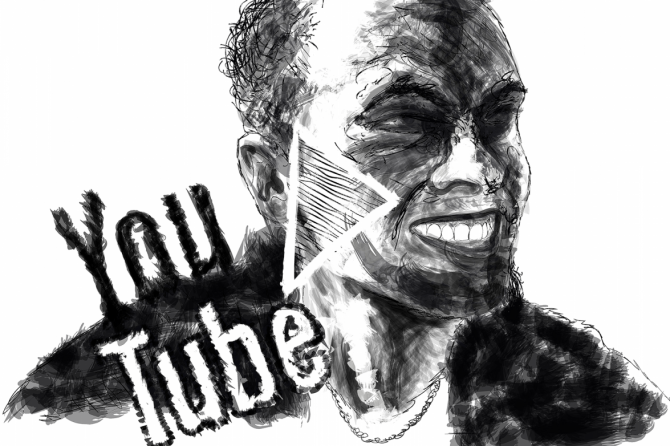It is easy to picture the sex offenders’ register as another, darker world, far away from the place we live in. We try not to think of these people and their actions, and when we do it is to regard them as monsters or controversial comedic vehicles. This is an understandable and natural response, considering the nature of their crimes. However, it masks a truth – that sex offenders are people, with family, friends and sometimes even fans, for whom the discovery of their crimes will cause great confusion and hurt.
The sexual abuse accusations currently disturbing the YouTube community are a warning to us that the world of sexual abuse is much closer than we would like to imagine. The celebrities accused have not been the seedy, reclusive individuals of popular imagination, rather they have been well-liked, with large followings of people who admired and trusted them. Last week, Irish YouTuber BriBry released a video discussing the allegations concerning a number of popular vlogging personalities on the site. “It’s been one of the worst weeks on YouTube, seeing all these people you thought you knew getting outed as sexual abusers”. Fans and friends of the people accused have struggled to recognise the new image under which they must now forever view the offenders.
The dehumanisation of sexual predators has made this much more difficult. Friends and family of someone accused of sexual offences can find themselves in an impossible predicament, attempting to reconcile the figure of vilification with the person they have loved and trusted. Vlogger Evan Edinger released a video on September 28, following allegations made against three YouTubers with whom he was acquainted – Alex Day, Sam Pepper and Veeoneeye. Edinger explained the pain of discovering the truth about close friends, stating, “this hit bad, because every time I’ve ever seen Sam Pepper he has complimented me, he has been nice to me, he invites me to his parties, so it’s mind-blowing that someone I could have been friends with, someone I have been nice to could have the potential to do this vile act to another breathing human being. … It hurts to know that I was friends with someone that did all these things … and it’s just upsetting that I didn’t do anything. Because I didn’t know. Because I trusted [them].’”
In addition to the trauma of such discoveries, familiars of sex offenders can find their own reputations and livelihoods at risk when the offences come to light. The disgrace associated with sex crimes is great enough to tarnish public status simply due to proximity. Attempts to maintain the friendship, or to seek aid for the accused, are made at great personal risk. David Norris’s withdrawal from the presidential race in 2011 stemmed at least in part from such a situation, following the publicisation of his efforts to help his former partner Ezra Nawi, who was imprisoned for statutory rape. “Yes, his actions were terrible, but my motivation to write the letter was out of love and concern,” Norris stated. “I was eager to support someone who had been very important in my life.” The widespread condemnation of Norris’s efforts cost him his candidacy, and served as a clear reminder of the perils of reaching out.
It is unsurprising, therefore, that many acquaintances of those who have committed sex crimes are quick to distance themselves from the situation. YouTuber BriBry’s video dissociated himself from exposed offenders with whom he has collaborated in the past, stating “He is not one of my close friends and never has been – This very common thing that YouTubers like to do is they like to exaggerate their friendships online and pretend they’re much closer than they actually are.” The sudden recantation of past affection shown to sex offenders can cause us to forget their previous image in the world, instead burying them in the midst of monstrosities. It is uncomfortable to consider that we could ever have any empathy for one whose actions have been so terrible, so we decide it never existed in the first place, that there was always something we didn’t trust, always something dividing us and them. But for those closest, who cannot renounce their affection and respect for the offender, the denial of all around them will only exacerbate the loneliness and guilt they feel.
The abuse of celebrity and power for sexual purposes is certainly not a new scandal, neither is the exposure of previously highly regarded public figures. However, for young people the YouTube abuse allegations come as a reminder that sexual offences are not confined to cases of cover-ups in the past, or to people of a certain age or occupation. In their 2013 annual report, the organisation One in Four stated that of the thirty sex offenders seeking treatment in their Phoenix Programme, 23% are aged between 18 and 29, while the Say Something survey of college students last year found that 31% of victims of unwanted sexual encounters knew the perpetrators, providing further indication of the likelihood of knowing a sex offender, regardless of lifestyle. The chances that someone you know, someone you like, will abuse and thus abuse your trust is unfortunately higher than we would like to imagine.
A positive emerging from the current accusations is the openness with which people have discussed the abuse, and the speed and certainty with which it has been condemned by all major figures in the YouTube community. However, the scandal has shed light on an issue ignored. The struggles faced by those close to sex offenders should not be dismissed or underestimated. We have seen what silence has contributed in the past, and know all too well that cloaking the issue won’t make it disappear. We have already opened the discussion of sexual abuse. It’s time to widen our conversation.
Illustration: Naoise Dolan







